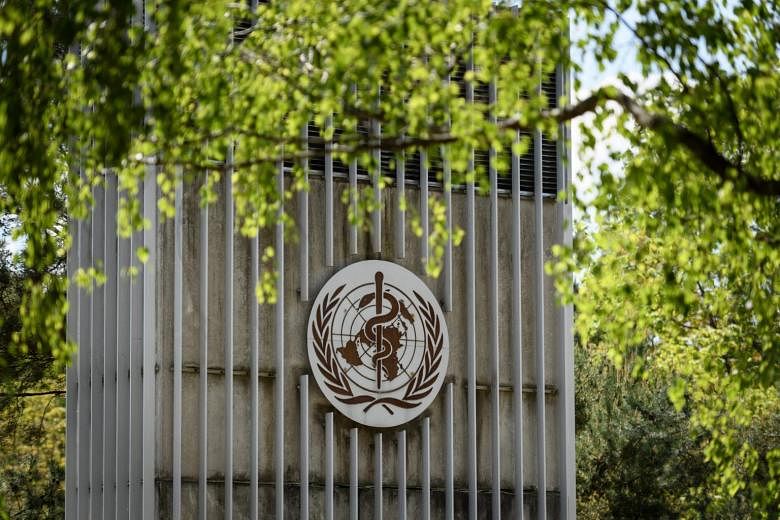WASHINGTON - America's withdrawal from the World Health Organisation will deal a blow to international cooperation precisely when it is most needed to counter the ongoing Covid-19 pandemic, said experts in the wake of President Donald Trump's announcement on Friday (May 29).
"In my 30 years working with the WHO, I have never seen it under such vicious attack," said Georgetown University professor Lawrence Gostin, director of the WHO Collaborating Centre on national and global health law. As WHO chief Tedros Adhanom Ghebreyesus is seeking to unify the world, "Trump has blown up any semblance of international cooperation", he said.
States are required to share research and medical equipment, as well as coordinate to reduce the economic and social impacts of the pandemic among other things. WHO is key to coordinating this response.
"With WHO holding a vital role in coordinating the international response, states must not take deliberately divisive actions that seek to undermine global health governance," said five global health academics in a commentary published in the Lancet medical journal on Friday.
Mr Trump said that the funds that would go to WHO would be redirected to "other worldwide and deserving urgent global public health needs", but did not specify which exactly.
Cutting ties with the global health agency is also an abdication of leadership that would diminish the superpower's influence over global health policy and cede influence to China, said critics.
"If it withdraws from the WHO, the US will lose a key means of shaping global health guidance, norms and practices. It would be withdrawing from the dominant forum for international health collaboration," said Dr Tom Inglesby, director of the Johns Hopkins University Centre for Health Security.
He added: "The US would be withdrawing from a key means of support to poorest countries in the world. For decades, the US has been a major supporter of WHO efforts to help alleviate global health scourges. Withdrawal would be a reversal of that international leadership position."
The Democrat-led House Foreign Affairs Committee said it had launched an inquiry into the decision to halt funding for WHO, calling it reckless.
Foreign Affairs Committee chairman Eliot Engel, a New York congressman, said: "As the world is grappling with this devastating pandemic, cutting off ties with the World Health Organisation is like shutting off the fire hydrants in the middle of a blaze."
Even Senate health committee chairman Lamar Alexander, a Republican senator from Tennessee, opposed the President's decision.
He said: "Certainly there needs to be a good, hard look at mistakes the WHO might have made in connection with the coronavirus, but the time to do that is after the crisis has been dealt with, not in the middle of it."
Withdrawing the US could, among other things, interfere with clinical trials essential to the development of a vaccine, and make it harder to work with other countries to stop viruses before they reach the US, he added.
Mr Trump has also been accused of pinning the blame on WHO's missteps as a way to distract from his administration's handling of the crisis at home, said critics, who pointed at the weakness of his case against the global health agency.
Calling the withdrawal an act of extraordinary senselessness, House Speaker Nancy Pelosi said: "Again and again, he blames others and refuses to take responsibility. Only with a coordinated global response will we defeat this virus."
Mr Trump's letter to WHO also included factual inaccuracies, including an allegation that WHO had "consistently ignored credible reports of the virus spreading in Wuhan in early December 2019 or even earlier, including reports from the Lancet medical journal".
The Lancet issued a statement calling the President's allegation factually incorrect, noting that its first papers on Covid-19 had been published on Jan 24 and recognised that there was human-to-human transmission.
Mr Trump had also originally given WHO 30 days to commit to making snap reforms, or the US would reconsider its membership in the organisation. On the eleventh day, only a third of the way into the ultimatum, the President withdrew anyway, they noted.
Said Mr Engel: "The WHO is only as strong is its members. It follows the course set by the leading voices.
"If the President were really concerned about China's influence at the WHO, he would be enhancing America's role instead of undermining the institution best equipped to cobble together a unified global response," he added.












